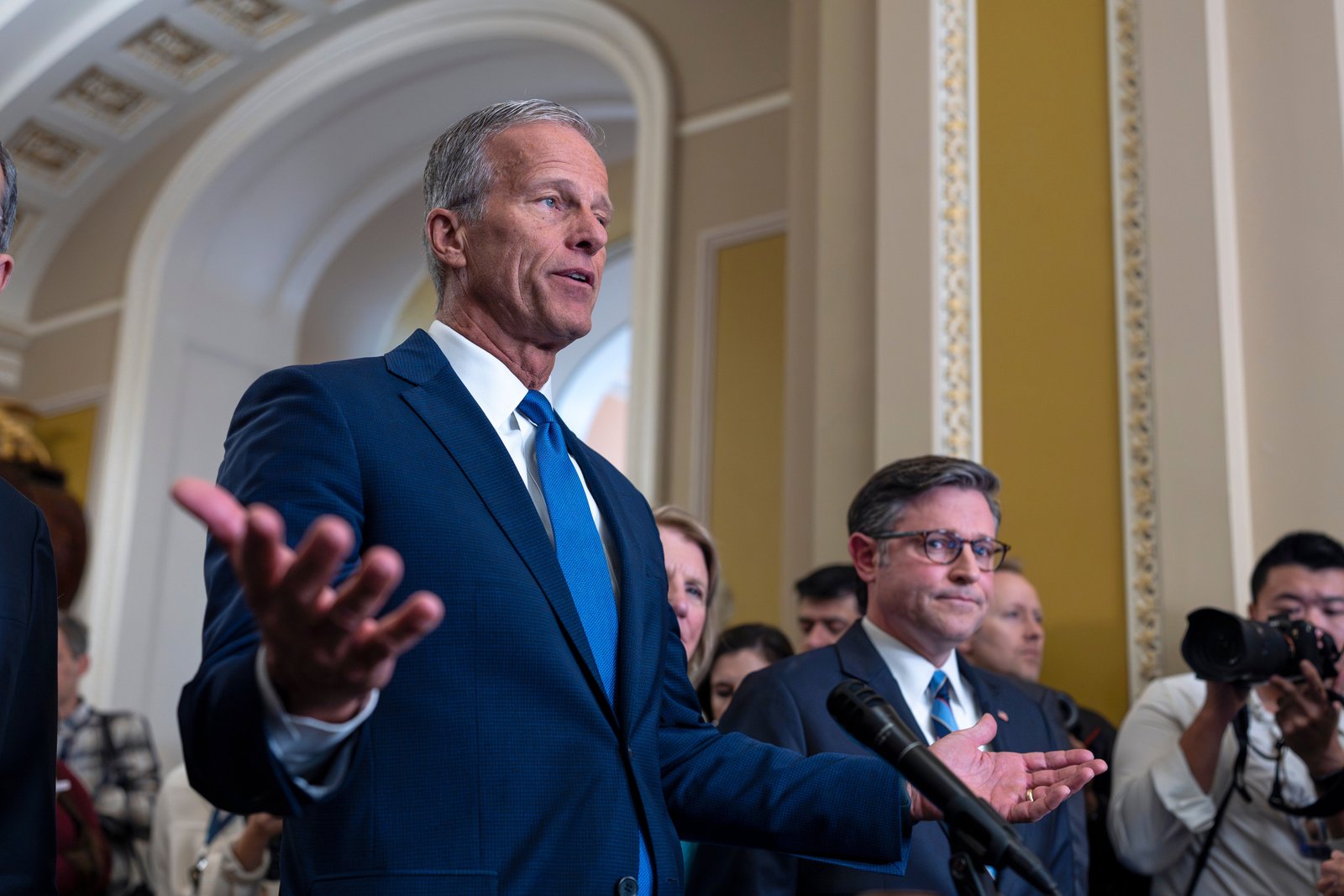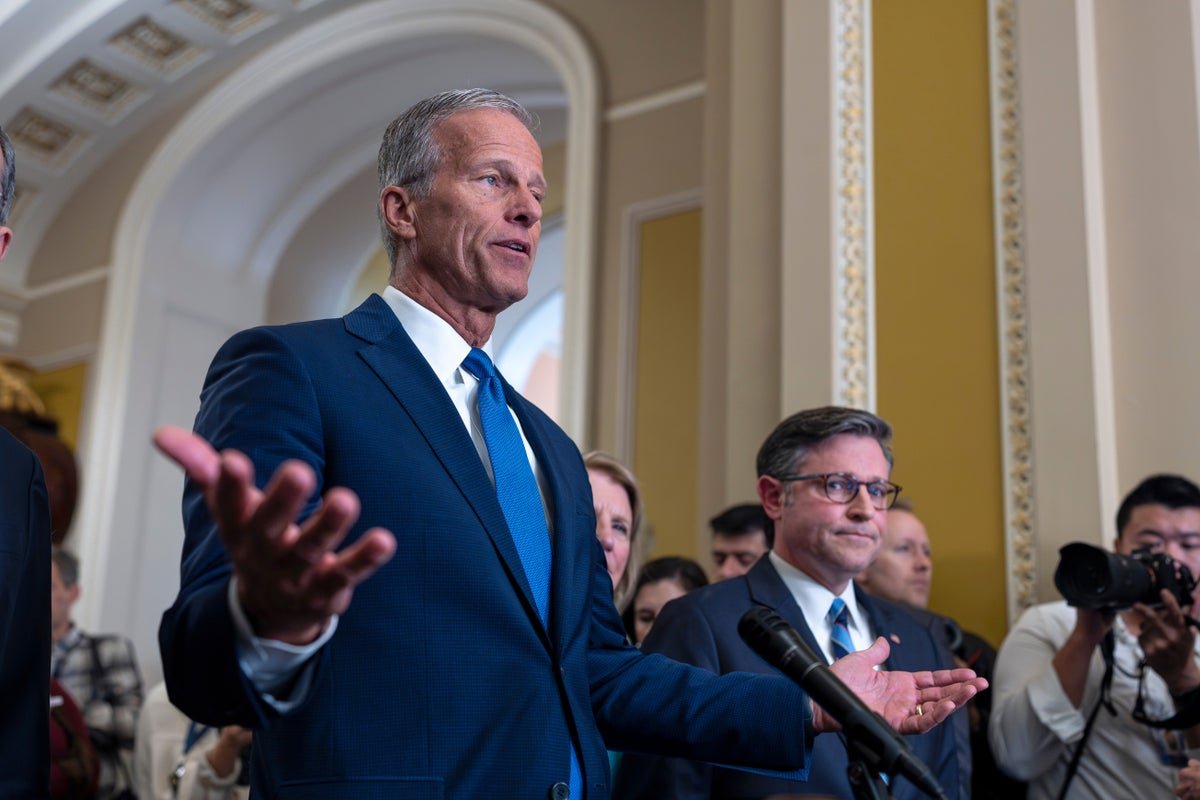ReRepublicans suffered a major defeat when one of Donald Trump’s nominees went down in flames on Tuesday.
An embarrassing spectacle unfolded over several days on the Hill as the president’s nominee to lead the Office of Special Counsel saw members of the GOP come out one by one to oppose his nomination. Paul Ingrassia withdrew his bid Tuesday night after it became clear he would not get enough votes for even a simple majority in a chamber where Republicans hold 53 votes out of 100 seats.
The reason for Ingrassia’s unpopularity was obvious: reports revealed that Ingrassia allegedly claimed to have “a Nazi streak” in texts sent to other Republicans. He is also accused of using racial slurs and has reportedly referred to Martin Luther King Jr., the American civil rights activist, as “the George Floyd of the 1960s,” adding that “his ‘vacation’ should be ended and thrown into the seventh circle of hell where it belongs.”
The headlines came as Trump and his MAGA Republican allies in Washington have eagerly leaned into portrayals of the American left as a group of violent thugs and avowed anti-Semites, sometimes aided by Democrats aligned with the party’s conservative wing. But Ingrassia’s downfall was only the latest crack in the foundation of this argument, hardly the first.
As Republicans came under pressure over Ingrassia’s alleged “Nazi” admission on Tuesday, their party is still dealing with the fallout from an entirely separate scandal involving the authoritarian World War II German regime: a leaked group chat in which prominent leaders of Young Republican chapters around the country openly expressed support for racist beliefs, used racist terms and homophobia about their centennial times racist and homophobic times. enemies to gas chambers. A Vermont state senator was forced to resign in disgrace after the texts were leaked.

Another anti-Semitism scandal is brewing in New Jersey, home to a key gubernatorial election in a few weeks. The Republican candidate, Jack Ciattarelli, was introduced on stage at an event Saturday by an unpaid adviser to his campaign, who opened for the governor-elect by insisting that he (the adviser) did not “take money from Jews.” The adviser, Ibrar Nadeem, also called for a ban on same-sex marriage in the same remarks.
What’s really at stake is not Donald Trump’s ability to get a nominee through the Senate, which remains (mostly) rock solid. It’s the GOP’s broader ability to guide the portrayals of its enemies, even at a moment when the Democratic Party is functionally leaderless and the party’s base appears to be at war with its remaining leadership in Washington.
Republicans entered 2025 with a clear ability to split an already splintering left-wing coalition that Kamala Harris and Joe Biden failed to pull together last year. First on the Laken Riley Act and later on a threat of a government shutdown in March, the GOP succeeded in dominating the narrative and forcing their enemies into politicized defeat.
That ability appears to have faded, with Democrats seemingly finding their unity in Congress and Republicans repeatedly hampered by factors that have undermined the president’s efforts to paint the left as violent radicals. Republicans continue to rage against Zohran Mamdani’s surging campaign in New York; Rep. Elise Stefanik, a former member of the House Republican leadership, referred to him with an Islamophobic slur (“jihadist”) at X, while a Fox News host falsely claimed Tuesday that Mamdani wanted to “eliminate” New York City’s entire Jewish community.

The smears have largely been unsuccessful, and Mamdani is still above 50 percent in most opinion polls. Meanwhile, congressional Republicans are facing questions on so many issues related to anti-Semitism in their party that it is now the right wing struggling to maintain message discipline even as a federal government shutdown enters its fourth week.
Millions of Americans took to the streets last Saturday for “No Kings” rallies in all 50 states, a clear demonstration of the strength of the left that came despite blistering condemnations of the demonstrations and the Democratic Party from both the White House and Republicans in Congress, who called supporters of America’s main opposition party “terrorists” who hated their own country.

Many of these protesters showed up to events in wild and crazy costumes, including in DC, where protesters at a dance party on the fringes of a 200,000-strong crowd told The independent that they aimed to counter the narrative of “violent” protesters on the left. Despite events taking place in all states, there were no significant incidents of violence at the protests on Saturday.
Even the momentum the right wing seemed to regain during September in the wake of the killing of Charlie Kirk during a speaking engagement at Utah Valley University appears to have dissipated. As Republicans appeared poised to use the issue to paint a one-sided view of political violence in the United States, Speaker Mike Johnson found himself dodging a question Tuesday about a pardoned Jan. 6 rioter who is now accused of plotting to assassinate Hakeem Jeffries, the Democratic House Minority Leader.
Polls can only show so much in terms of how effective both parties are at winning the Washington message war, which is only mildly effective this far out from next year’s midterm elections. But real election tests are coming to gauge the strength of each party’s brand, including the most imminent races in Virginia and New Jersey. Republicans may find themselves shifting strategy as this shutdown drags on and if it becomes clear that their enemies are coming out of the post-2024 funk.
